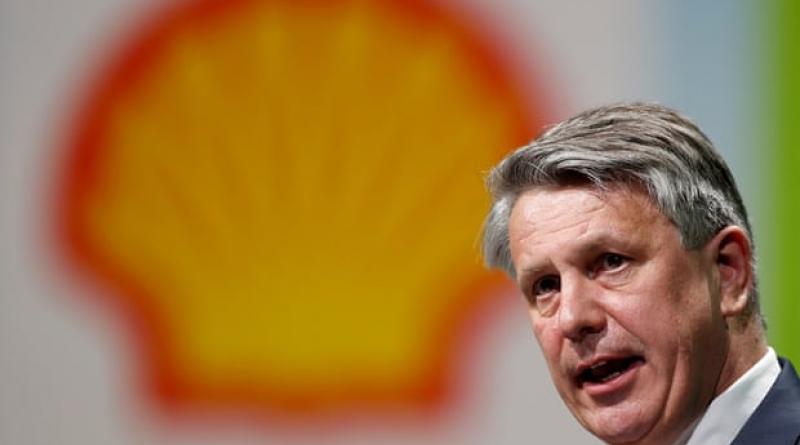Shell to expand gas business despite pledge to speed up net zero carbon drive.

Energy firm seeks to grow operation by 20% but offset expansion via carbon capture and ‘nature-based solutions’.
Shell has set new carbon emissions goals to become a net zero carbon energy company by 2050, but will continue to grow its gas business by more than 20% in the next few years.
The Anglo-Dutch oil company’s new climate strategy will include a modest fall in oil production, by selling oilfields or through the natural decline of their reserves, and an increase in gas production and gas exports to the global market.
Shell’s goal is to be net zero carbon company within 30 years, including the emissions from burning its fossil fuels. But the plans have raised concerns among green campaigners that Shell may still increase its emissions in the coming decade, which is considered a crucial period to avoid a climate catastrophe.
The company said its oil production reached a peak in 2019, and would continue to fall by 1-2%. But it will expand its capacity to export 33.3m tonnes of liquefied natural gas (LNG) a year, by another 7m tonnes a year by the middle of the decade. In contrast, BP has promised to cut its oil and gas production by 40% by 2030.
Shell plans to offset its own emissions and those from the fossil fuels it sells through carbon capture projects and “nature-based solutions” such as planting trees or restoring natural habitats.
The company is involved in three capture projects, one of which is operational, that will be able to capture 4.5m tonnes of carbon a year. It hopes increase its access to these schemes by more than five-fold so it can capture another 25m tonnes of carbon a year by 2035.
The company has also promised to grow its green energy business to help meet its customers demand for low-carbon energy. The plan includes growing its network of electric vehicle charge points from more than 60,000 to 500,000 by 2025. It also promised to invest more in hydrogen, which can be used as a clean-burning gas in industry and transport, and to double its sales of electricity.
Ben van Beurden, Shell’s chief executive, said the plan would “drive down carbon emissions” and deliver “value for our shareholders, our customers and wider society” while continuing to use the company’s “established strengths”.
Van Beurden assured investors the plan would create “more predictable cashflows” and help to generate higher returns. This would help the company to grow its dividends by 4% a year, and reduce the company’s net debt to $65bn (£47bn).
But the plan has attracted criticism from green groups for being vague on Shell’s clean energy aims and unambitious on carbon emissions targets.
Shell’s carbon targets for the next 14 years, which will help determine executive pay, will be based on the “carbon intensity” of its energy. This is not the same as the absolute emissions created, and means Shell could lower its carbon intensity by selling more clean energy alternatives without reducing the amount of fossil fuels produced.
Shell promised to reduce its net carbon intensity by between 6% to 8% by 2023, compared with 2016, which would widen to 20% by 2030 and 45% in 2035 before reaching an absolute emissions cut of 100% by 2050.
Jeanne Martin, a senior campaign manager at Shareaction, said the plan raised “a lot of red flags”.
“It continues to rely on weak intensity targets, targeting just 20% reduction in intensity by 2030, not absolute emissions, and is essentially kicking the difficult decisions into the long grass,” she said.
Greenpeace described Shell’s decision to avoid tough oil production cuts by allowing its reserves to dwindle as “grotesque”. Mel Evans, a senior Greenpeace campaigner, said: “Without commitments to reduce absolute emissions by making actual oil production cuts, this new strategy can’t succeed nor can it be taken seriously.”
The consensus among equity market analysts was that Shell’s investment and fossil fuel production plans were broadly in line with its existing strategy. Analysts at Jefferies said the strategy did not introduce significant changes in Shell’s energy transition strategy and that the company’s emissions targets remained “partially unclear, based on the limited low-carbon growth targets provided”.
11 February 2021
The Guardian





